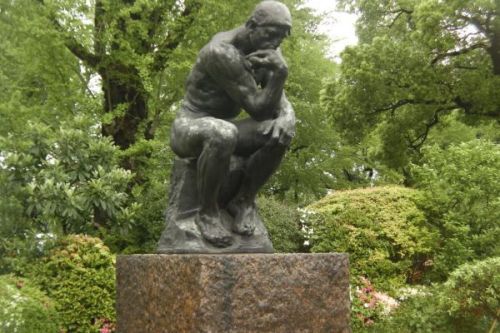I just found another blog post to reblog. This time written by The Brazilian atheist John Zande, a very skillful anti-theist debater and blogger.
In this blog post John Zande analyzes Christianity from a death cult perspective. His post is full of valuable facts and data put together, by him, in a very praiseworthy way.
Maybe he should have analyzed also the concept of Christian martyrdom.Therefore I’m now going to add some facts about that aspect.
To start with, two links that might be of interest:
1) https://en.wikipedia.org/wiki/Christian_martyrs ; and
2) https://en.wikipedia.org/wiki/Lapsi_(Christianity) .
Today we shake our heads when we see or hear about Muslim suicide bombers killing themselves at the same time as they kill innocent people (often seen as religious enemies, non-believers, wrongdoers, apostates etc).
Since the suicide bomber does this evil act in the name of Allah, he or she is promised, by an imam or cleric, to get/have instant access to all the enjoyments in Paradise immediately after his/her death.
But we must not forget that also Christians have practiced martyrdom by killing people belonging to other religions (maybe especially Islam).
By defending Christian religion and values and/or attacking those who refused to see Jesus as the Christ hypostasis of the God Trinity you could become a martyr, if you died (was killed) while trying to do this.
Here is another good article about Christian martyrs: http://www.slate.com/articles/news_and_politics/explainer/2012/10/christian_martyrdom_when_did_christians_stop_trying_to_die_for_god.html .
A quote from this article: “[…,] even Christian authorities have abandoned the prohibition against voluntary martyrdom. The diaries of medieval crusaders clearly indicate that they viewed themselves as martyrs, and Pope Urban II offered the fallen complete absolution and immediate passage to heaven. (The status of crusaders as voluntary martyrs is somewhat controversial, because they may have viewed themselves as draftees in a defensive war.)
Let me summarize like this: The concept of “Lying for Jesus” is still today rather well-known. But the idea of “Dying for Jesus” seems to have fallen into oblivion. So it’s about time to resuscitate that notion to show there are more reasons than the ones cited by John Zande to call Christianity a death cult religion. (I myself even consider the Christian Communion to be a cannibalistic ritual.)
David at Applied Faith has a post up, How Evangelicals Can Look Not-So-Crazy about the End Times, concerning the imminent arrival of the Christian End Times
“We’re in a climate where Christians are being mass-murdered and driven out of the Middle East. Russia is violently propping up the Shia regime in Syria, Iran may already have a nuclear weapon, and the United Nations routinely persecutes Israel. Many Christians believe that Islam is evil, and the followers of Muhammad may spawn The Anti-Christ.”
As you might however have gathered from the article’s title, his worry is not the pending annihilation of our home planet and the eradication of all life at the hands of his particular Middle Eastern god, Yhwh, but rather the somewhat annoying fact that evangelicals, like himself, are broadly considered “crazy” by the general public when they start hollering the end is neigh. It’s an honest complaint, and…
View original post 1,686 more words






